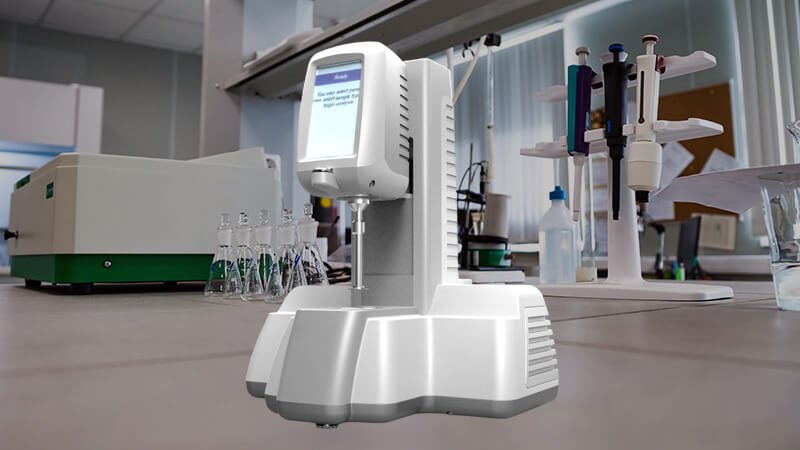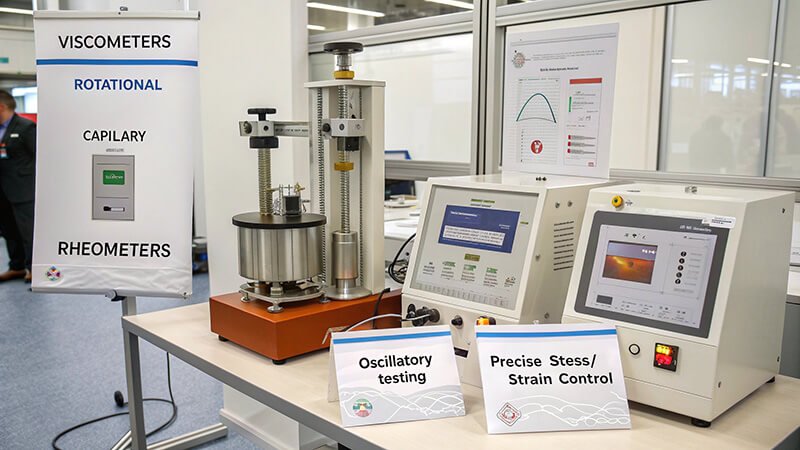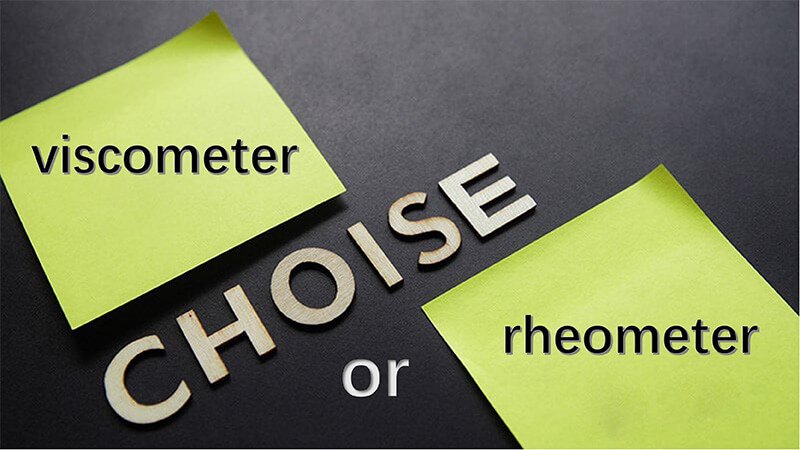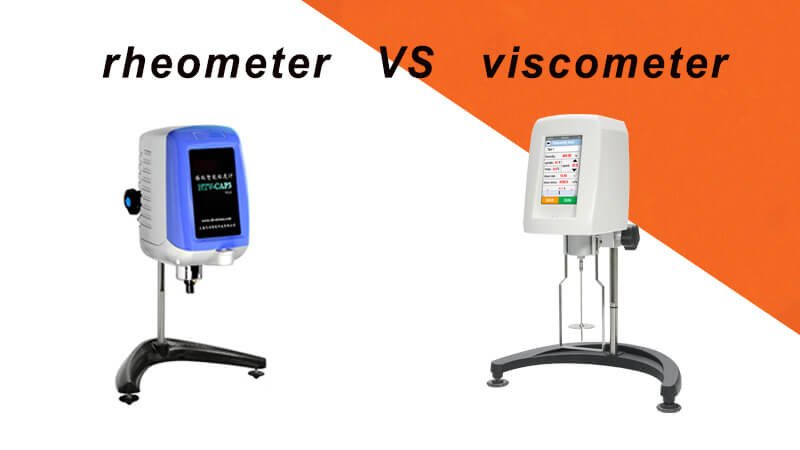Confused about whether to invest in a viscometer or rheometer? Making the wrong choice could cost you thousands in unnecessary expenses or missed capabilities.
A viscometer measures only viscosity (resistance to flow), while a rheometer measures both viscosity and other material properties like elasticity, yield stress, and viscoelastic behavior. Viscometers are simpler and more affordable, while rheometers offer comprehensive material analysis.
After a decade of helping customers choose between viscometers and rheometers, I've learned that understanding the key differences is crucial for making the right investment. Let me share what really matters when making this decision.
What Is a Viscometer and How Does It Work?
Ever wondered why some customers choose the simpler viscometer over the more advanced rheometer? The answer lies in understanding what a viscometer actually does.
A viscometer is a specialized instrument that measures a fluid's resistance to flow (viscosity) by applying a controlled shear rate and measuring the resulting shear stress. It's ideal for quality control and simple viscosity measurements.
Based on my experience at Martests, here's what makes viscometers special:
Key Features of Viscometers:
- Measurement Capabilities
- Single-point viscosity measurements
- Basic flow behavior analysis
- Temperature-dependent viscosity tests
- Continuous monitoring options
- Operational Benefits
- Simple to use and maintain
- Cost-effective solution
- Quick results
- Reliable for QC purposes
- Common Applications
- Quality control checks
- Production monitoring
- Basic R&D work
- Standard compliance testing
I've seen many customers successfully using viscometers for years without ever needing the advanced features of a rheometer.
What Is a Rheometer and When Should You Use One?
Struggling with complex material behavior that a basic viscometer can't measure? A rheometer might be exactly what you need.
A rheometer is a sophisticated instrument that measures not just viscosity but also elasticity, yield stress, and other complex material properties. It can perform oscillatory tests and measure viscoelastic behavior under various conditions.

From my experience with advanced testing requirements, here's when a rheometer becomes essential:
Advanced Capabilities:
- Complex Analysis
- Viscoelastic properties
- Yield stress determination
- Structure recovery tests
- Creep and relaxation studies
- Testing Modes
- Oscillatory testing
- Step strain measurements
- Temperature ramps
- Multiple frequency sweeps
- Material Types
- Complex fluids
- Soft solids
- Gels and pastes
- Non-Newtonian fluids
How Do Viscometers and Rheometers Measure Flow Differently?
Wondering about the technical differences between these instruments? The measurement principles reveal why each excels in different applications.
Viscometers typically use rotational or capillary methods to measure flow resistance, while rheometers employ more sophisticated techniques including oscillatory testing and precise stress/strain control.

Let me break down the key measurement differences I've observed:
Measurement Methods Comparison:
| Feature | Viscometer | Rheometer |
|---|---|---|
| Basic Viscosity | Yes | Yes |
| Yield Stress | Limited | Comprehensive |
| Elasticity | No | Yes |
| Temperature Range | Standard | Extended |
| Shear Rate Range | Limited | Wide |
| Test Flexibility | Basic | Advanced |
Which Instrument Should You Choose for Your Application?
Still unsure which instrument fits your needs? Let's analyze your specific requirements to make the right choice.
Choose a viscometer for basic quality control and simple viscosity measurements. Select a rheometer when you need comprehensive material characterization, including elasticity and complex flow behavior analysis.

Here's my practical guide based on years of helping customers make this decision:
Selection Criteria:
- Application Requirements
- Simple QC: Viscometer
- R&D: Rheometer
- Process Control: Viscometer
- Material Development: Rheometer
- Budget Considerations
- Initial Investment
- Operating Costs
- Training Requirements
- Maintenance Needs
- Operator Expertise
- Basic Training: Viscometer
- Advanced Knowledge: Rheometer
- Data Analysis Skills
- Method Development
Can You Replace a Rheometer with a Viscometer?
Trying to cut costs by using a viscometer instead of a rheometer? This decision could either save money or create costly problems.
While viscometers can replace rheometers for basic viscosity measurements, they cannot substitute for advanced rheological testing. The choice depends on your specific testing requirements and quality standards.

Based on my consulting experience, here's when substitution works and when it doesn't:
Substitution Guidelines:
- Possible Substitution Cases
- Basic QC measurements
- Simple flow behavior monitoring
- Standard viscosity tests
- Temperature-dependent viscosity
- When Substitution Won't Work
- Viscoelastic analysis
- Yield stress determination
- Complex fluid characterization
- Advanced R&D requirements
Conclusion
Choose a viscometer for basic viscosity measurements and quality control, or invest in a rheometer for comprehensive material analysis. Understanding your specific needs is key to making the right choice and avoiding costly mistakes.


